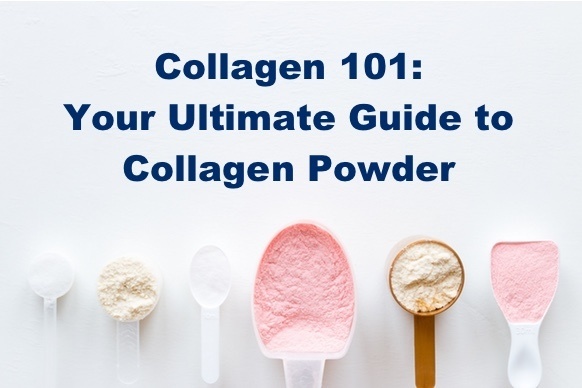
Collagen powder: it’s the health and wellness sensation that’s so hot right now. What’s it all about, though? Is it really as awesome as everyone claims it is? (Spoiler alert: it sure is!)
Want to get the lowdown on collagen from A to Z? Keep reading for everything you need to know!
What Exactly Is Collagen?
The short answer? Collagen is a protein (which is why it’s often referred to as collagen protein). It’s the building block of our bodies, largely making up our cartilage, tendons, bones and skin.
Proteins, including collagen, are made up of amino acids. What’s special about collagen is the amino acids bind into triple spiral patterns that make it both structurally strong and also elastic.
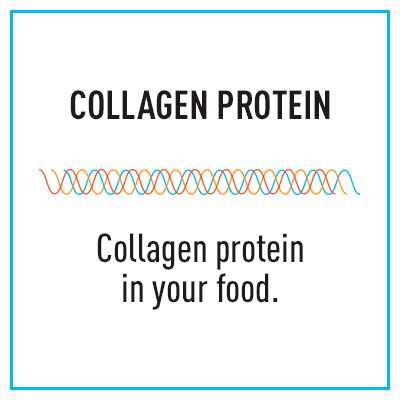
Think of the strength of a bodybuilder who is able to lift hundreds of pounds because of strong collagen in his leg muscles, bones and joints.
Now remember a time when you pinched a baby’s cheek. The elasticity of the baby’s skin was also due to healthy skin collagen.
The strength and elasticity are both due to healthy collagen.
And collagen supplements. Why? Because it helps add those collagen peptides into your diet, improving your:
- Bone strength
- Joint health
- Skin, hair, and nails
- Gut health
Collagen protein is made of amino acids forming a complex triple-helix structure. When you boil animal bones, joints, etc for a while you can make what’s called a “bone broth” which is the gelatin form of collagen (like real gelatin powder you can buy at the grocery store).
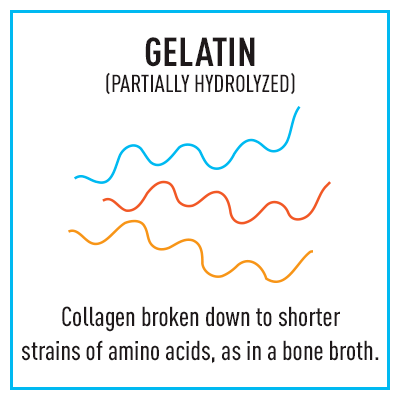
With even longer boiling and enzyme activity, the collagen breaks down into even smaller particles called “collagen peptides”.
Hydrolyzed collagen, the supplemental form you can add to your diet, has been treated with 1) enzymes and 2) some heat to make the molecules more digestible. The hydrolyzing process makes the collagen a whopping 95% more bioavailable as compared to a mere 27% for most meat in your diet!
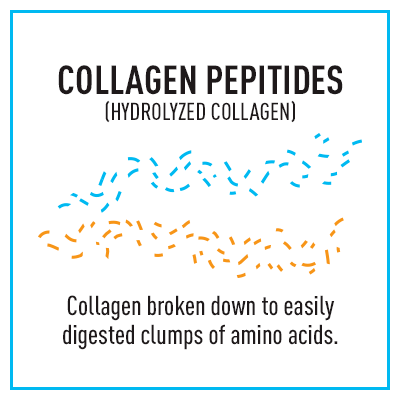
Since collagen is so essential for the holistic health of our bodies, it makes sense that people across the globe are jumping on the bandwagon. Especially because as you age your body starts losing its ability to produce collagen on its own.
So what’s the magic age you should start taking collagen supplements? And why does our body stop producing it in the first place?
Why We Lose Collagen
There’s some good news, some bad news… and then more good news (hopefully).
The good news is your body is excellent at maintaining healthy collagen. There’s actually a collagen cycle in your body where you are constantly breaking down existing collagen and building up new collagen. It’s your body’s way of recycling!
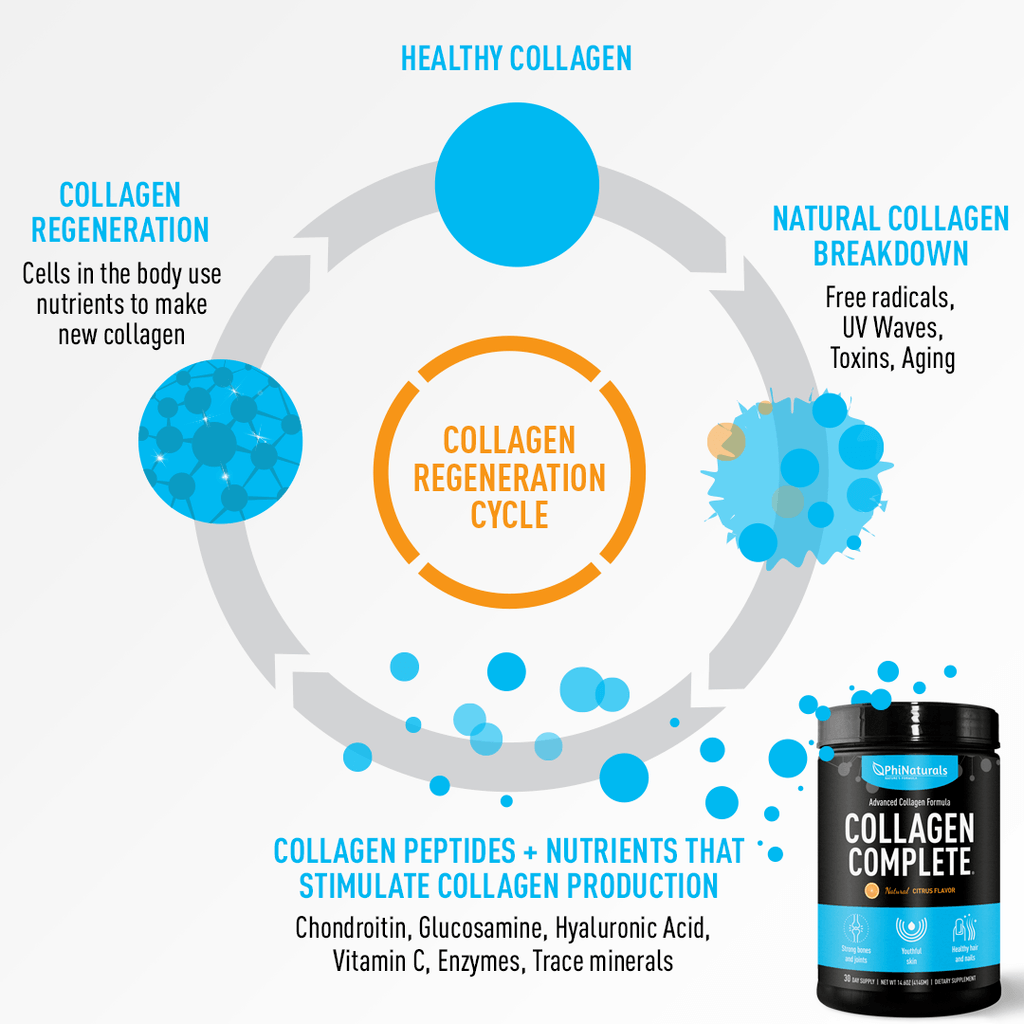
You read that right, there are cells in your body that break down old collagen and other cells that create new collagen using the nutrients you provide them through your diet.
For most of our lives, our bodies produce plenty of new collagen to keep our bones strong, our skin elastic, and our joints flexible. As we get older, though, this cycle of new collagen production declines.
Let’s get the bad news over with: collagen production peaks in your early 20’s, and begins to decline at the age of 25. It begins to fall off steeply in your early 40’s.
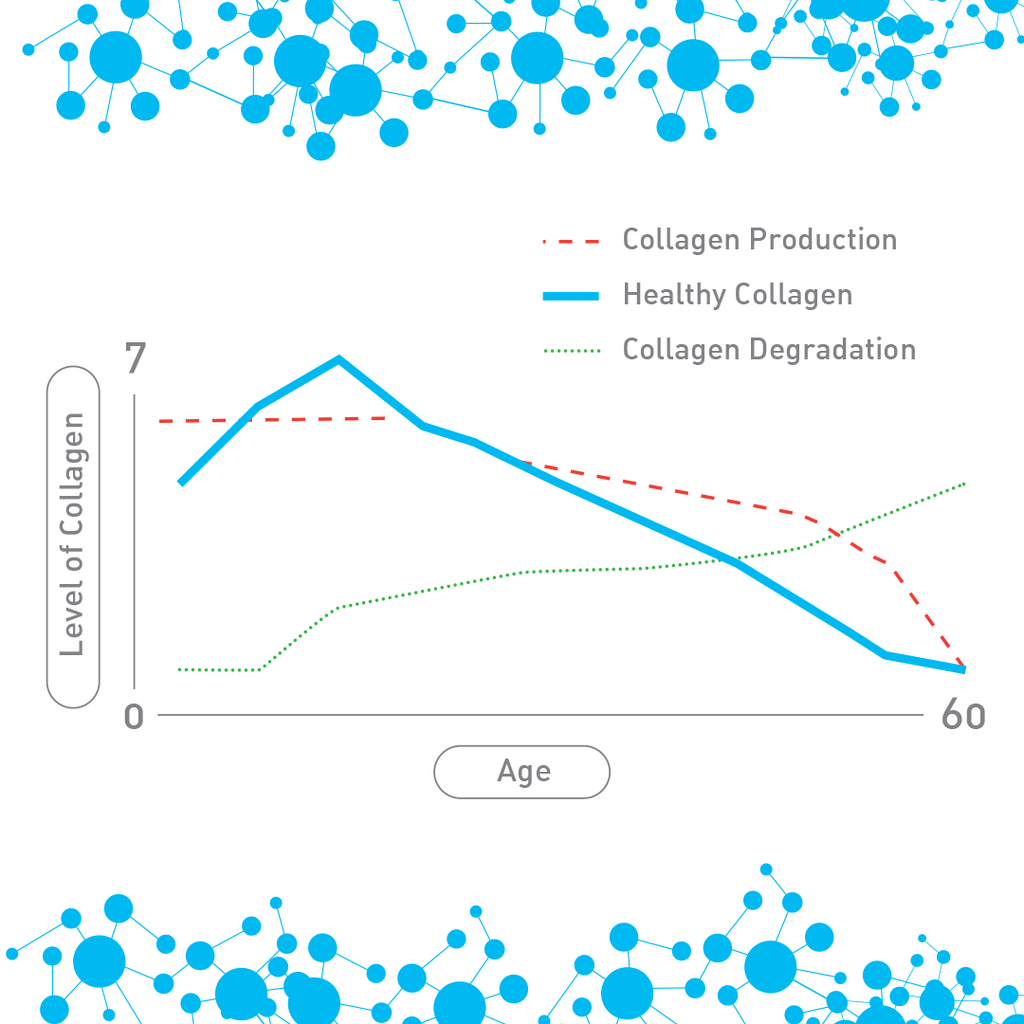
The good news, though, is this: there’s a solution to prevent the sharp decline of collagen production. Collagen peptide supplements have been proven to reduce signs of aging, like wrinkles, fine lines and bone loss.
How do you know if your collagen decline is rapid or slow? Here are a few symptoms you’re losing collagen, and could probably use a supplement:
- You’re starting to see wrinkles and fine lines (on your face or body!)
- Your hair gets brittle super fast
- Your nails are starting to break easily
- You have symptoms of bone loss
- You frequently experience digestive issues, like heartburn and constipation
- You’re seeing new cellulite on your body
- You’re starting to feel joint pain
Any of the above sound like you? If so, it might be time to get some more collagen peptides in your diet. Even if it doesn’t, if you’re over the age of 25, you should get ahead of the game.
Keep reading for essential details and a how-to for introducing more collagen into your diet!
Collagen Types
You can find 28 different collagen types throughout your body. Each type differs according to the amino acid types and patterns that make it up. To break it down: your gut will have a different type of collagen than your joint cartilage, for instance. That’s why the collagen in your nails feels different than the collagen in your skin.
Here are the types most commonly found in supplements: Types 1, 2, and 3. Different collagen supplements will contain different types of collagen, depending on what part of the animal they use to make it.
Type 1 is by far the most common collagen type your body contains. Your connective tissues, skin, cartilage, bones, and tendons all contain type 1. Since it’s such an essential collagen type for your bod, you should make sure your supplement contains type 1 collagen.
Type 2 is mostly found in your body’s cartilage (such as in the joints). It’s essential for those experiencing joint and bone decay.
Type 3 can often be found in the same places as type 1, except it also extends to a few of your vital organs. That includes your liver, spleen, and even your muscles and arteries, too.
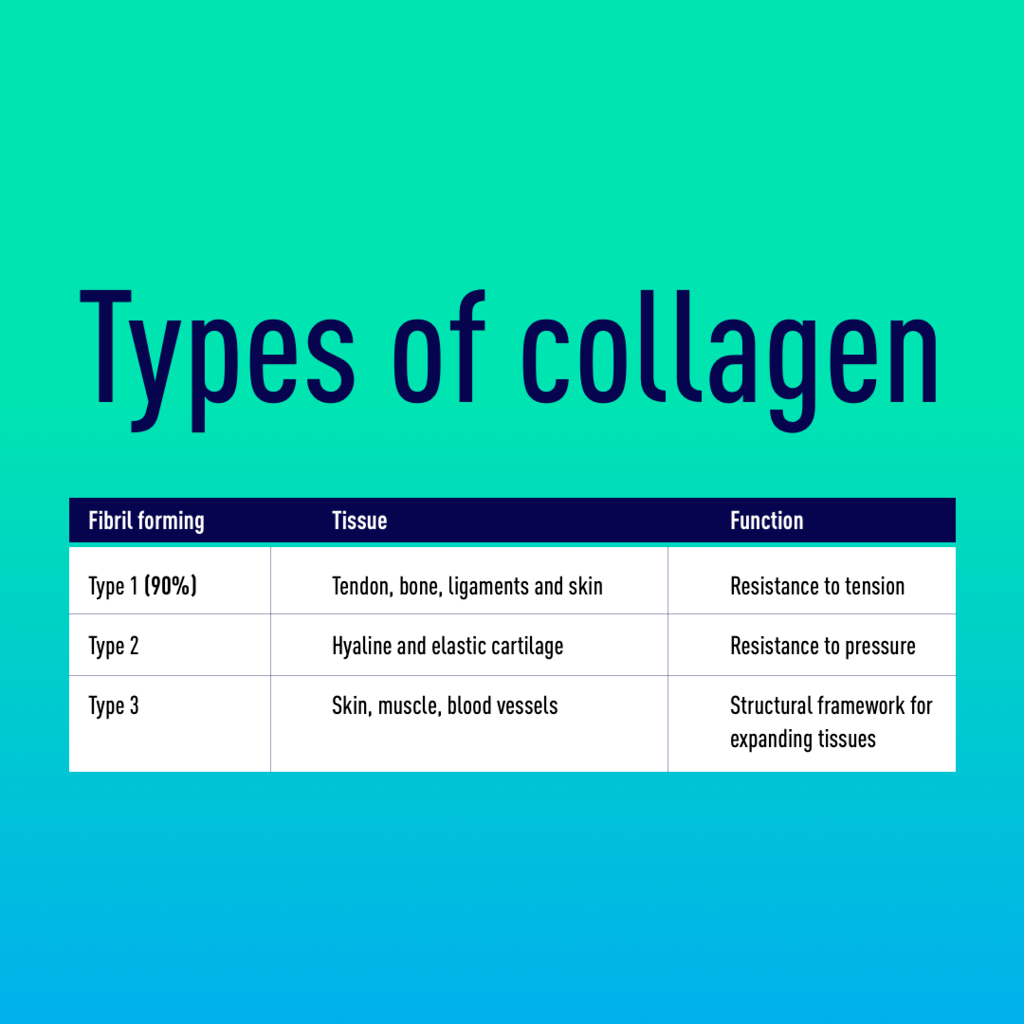
Collagen Supplements Vs. Collagen Creams
Because of all the “collagen-booster creams” on sale at your local department store, many people think you can just apply collagen peptides to your skin and erase wrinkles. If only it were that easy!
Studies show collagen peptide creams don’t actually work that way. While collagen peptides are easily absorbed through your digestive system, they are too big to get through your skin.
While other cosmetic ingredients can help boost skin collagen locally, such as Vitamin C and Hyaluronic Acid serums, the best way to boost collagen in your skin is to supplement it from within and let your body naturally repair your skin’s collagen.
The Many Benefits of Collagen
Now that you know a little more about what collagen is, let’s dive into the collagen benefits that are almost too numerous to count. What can collagen do for you?
First up: your skin. Taking collagen for skin is definitely a good idea if you’re trying to keep those cheeks and eyes free of wrinkles and fine lines. Studies show that collagen can:
- Improve your skin’s elasticity
- Keep your skin looking fresher & younger
- Fight signs of aging
- Combat cellulite
How? Well, by replenishing the collagen levels in your skin’s dermis (the second layer of skin on your body). Your dermis is where your body stores the stuff it needs to keep your skin looking full, plump, and smooth. It’s where your collagen lives (and where you’re probably lacking it!).
Next up: your hair and nails. Like your skin, your hair and nails lose collagen as you age. Diminished collagen levels can lead to weak nails and brittle hair that’s prone to breakage. Upping your collagen levels helps with both.
Here’s a big one: collagen can help your joint and bone health. It’s been shown to reduce inflammation, which can lead to joint pain and weakened bones. Some studies have even found that collagen reduced joint pain in athletes (you know, the people that move around more than anyone else!). This is good news for aging folks who are tired of hearing their body creak when they move!
We’ve got two more big ones before we move on!
The first is your gut health. Collagen supplements can help ease symptoms of inflammatory bowel issues, aid in digestion, and it can even help repair leaky gut syndrome. Leaky gut sucks to deal with; it’s an issue where damage to your small intestine slowly allows waste, bacteria, and food particles to find their way into your blood. Leaky gut can lead to symptoms like:
- Frequent headaches, annoying memory loss, and brain fog
- Sugar and carbohydrate cravings
- Fatigue
- Acne and eczema
Do you have time for that in your life?! Didn’t think so.
Finally, collagen supplements can help your gains at the gym! Protein is essential both for keeping you energized and full and in growing muscle mass. Adding a collagen supplement to your diet can help give your body the fuel it needs to grow muscle faster and help your body recover quicker after a workout.
The best part about hydrolyzed collagen supplements? They’re not always tissue specific. That means they’ll go where your body needs them the most. It might start with your hair, then your joints, then your nails… you name it. You can sit back and let it work its magic.
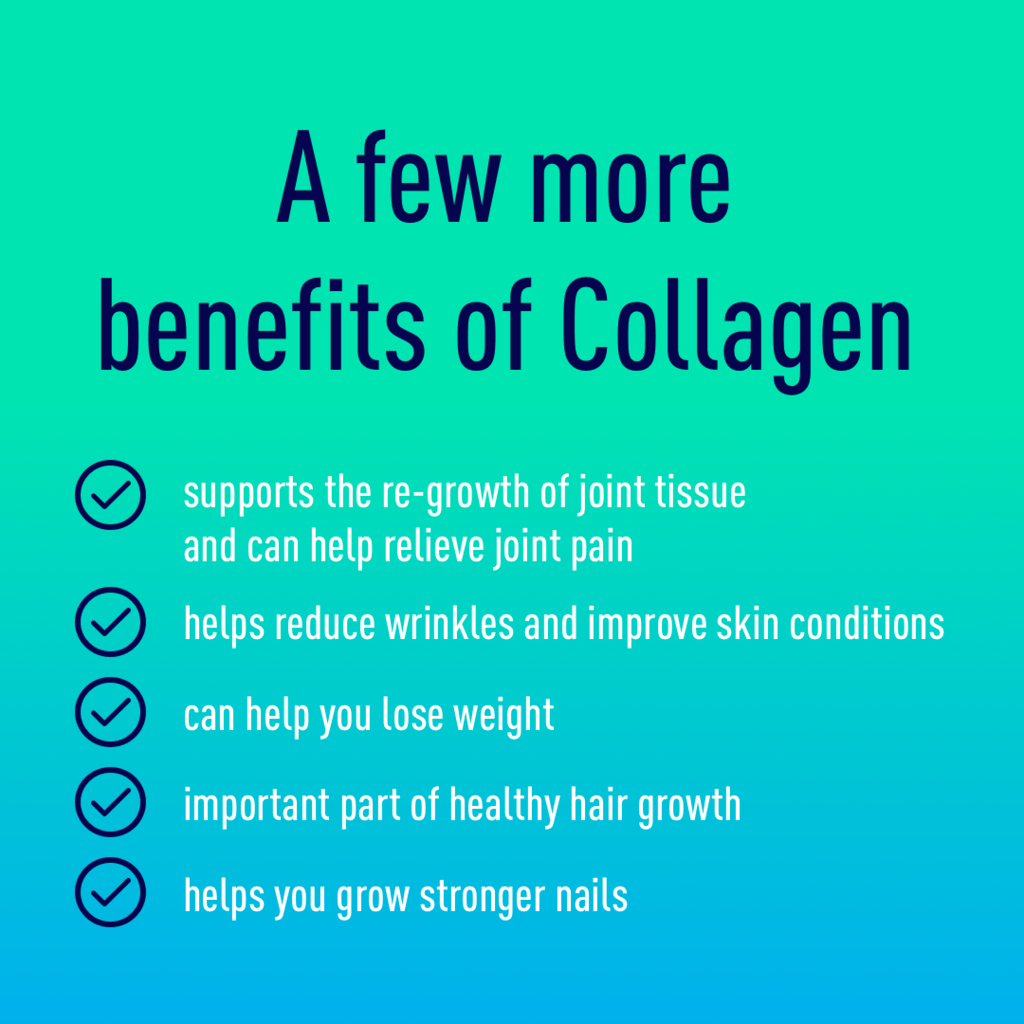
Collagen Complete Vs. Collagen Peptides: What’s the Difference?
Collagen peptides are blowing up the internet (with good reason). But what’s the difference between collagen peptides and a product like Collagen Complete?
Here’s the breakdown.
Collagen Complete contains 10,000 mg of hydrolyzed collagen. It also contains 4,000 mg of 6 other ingredients per scoop. Those ingredients are:
- Chondroitin (1500 mg)
- Glucosamine (1200 mg)
- Hyaluronic Acid (25 mg)
- Vitamin C (100 mg)
- Papaya and Pineapple enzymes (60 mg)
- Trace minerals including silicon (100 mg)
All these ingredients are essential for the collagen regeneration cycle to occur which is why they’re included in this powerful collagen-boosting supplement.
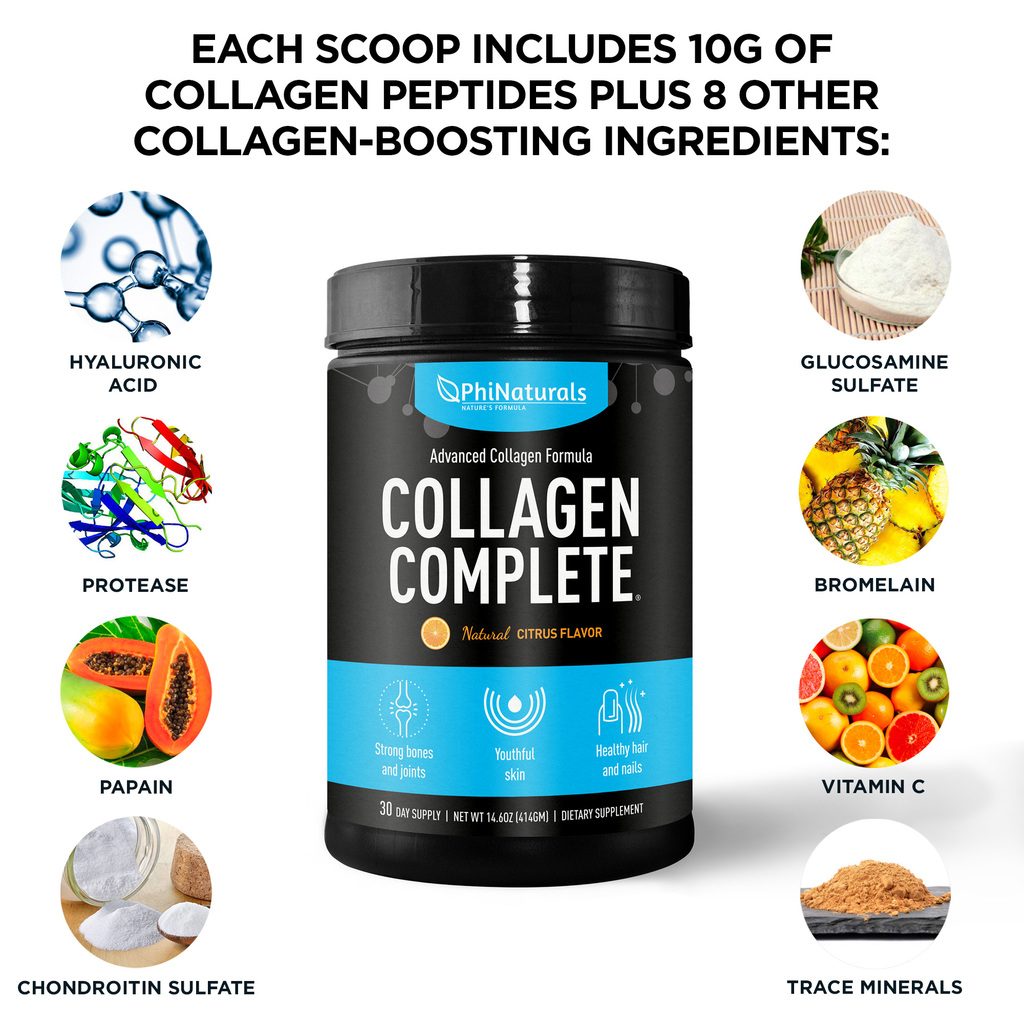
Because it’s so comprehensive, Collagen Complete really is a complete repair and regeneration solution, which is why it’s perfect for you if you’ve got a bone or joint injury or if you’re over the age of 35 and need a serious product for supporting all aspects of collagen health.
Why not take a collagen pill instead? Well you’d probably have to take 15-20 large pills to get all the collagen-boosting ingredients in one scoop of Collagen Complete.
Because Collagen Complete has so many ingredients, we offer it in citrus flavor to mask the taste of some of those nutrients. We just recently made it available as “Unflavored” which we recommend mixing with juice or a shake.
Our Collagen Peptides supplement, on the other hand, contains simply 10,000 mg of hydrolyzed collagen per scoop. It’s completely tasteless, so this is an ideal product adding to coffee, shakes, popsicles, soups and more!

Regardless of which product is right for you, it’s safe to say that upping your collagen will change your life!
Are There Side Effects?
One of the most frequently asked questions about collagen powder: what are the side effects of collagen?
Luckily, since collagen is something our body naturally produces anyway, you won’t be frightened by the answer. Pharmaceuticals and chemical skin care products, like Retinol, tout a slew of side effects that’ll leave you questioning if they’re really improving your life. What’s the point of a helpful product if it hurts just as much?
Other collagen supplements may have side effects that come from collagen powder derived from marine sources, like shellfish and shark cartilage. Marine-sourced collagen supplements can cause allergic reactions, since around 7 million Americans have shellfish allergies.
On a less serious (but just as disturbing!) note, marine-sourced collagen powder is known to have a less-than-appetizing taste. Many mask it by dissolving it into orange juice, but we’re pretty sure you won’t want a fishy taste in your morning collagen coffee.
The good news is Collagen Complete and our Collagen Peptides supplements don’t contain any marine collagen and are made with 100% Grass-Fed Beef collagen.
Stir our collagen peptides into coffee, mix it in with your morning smoothie, you name it; since it’s hydrolyzed, it’ll disappear—flavorless and without side effects—into whatever beverage you choose!
Up Your Collagen Protein with Collagen Powder
You’ve read up on the way collagen works and the benefits of adding a hydrolyzed collagen powder to your diet. Your next step? Finding the right one!
Check out Collagen Complete and our Collagen Peptides for the best collagen powders on the market. They’re made in the USA, 100% natural, and bovine-derived from pasture-raised cattle. Oh, and each ingredient has its own certificate of analysis from a food safety organization, too. We’ve got your back!
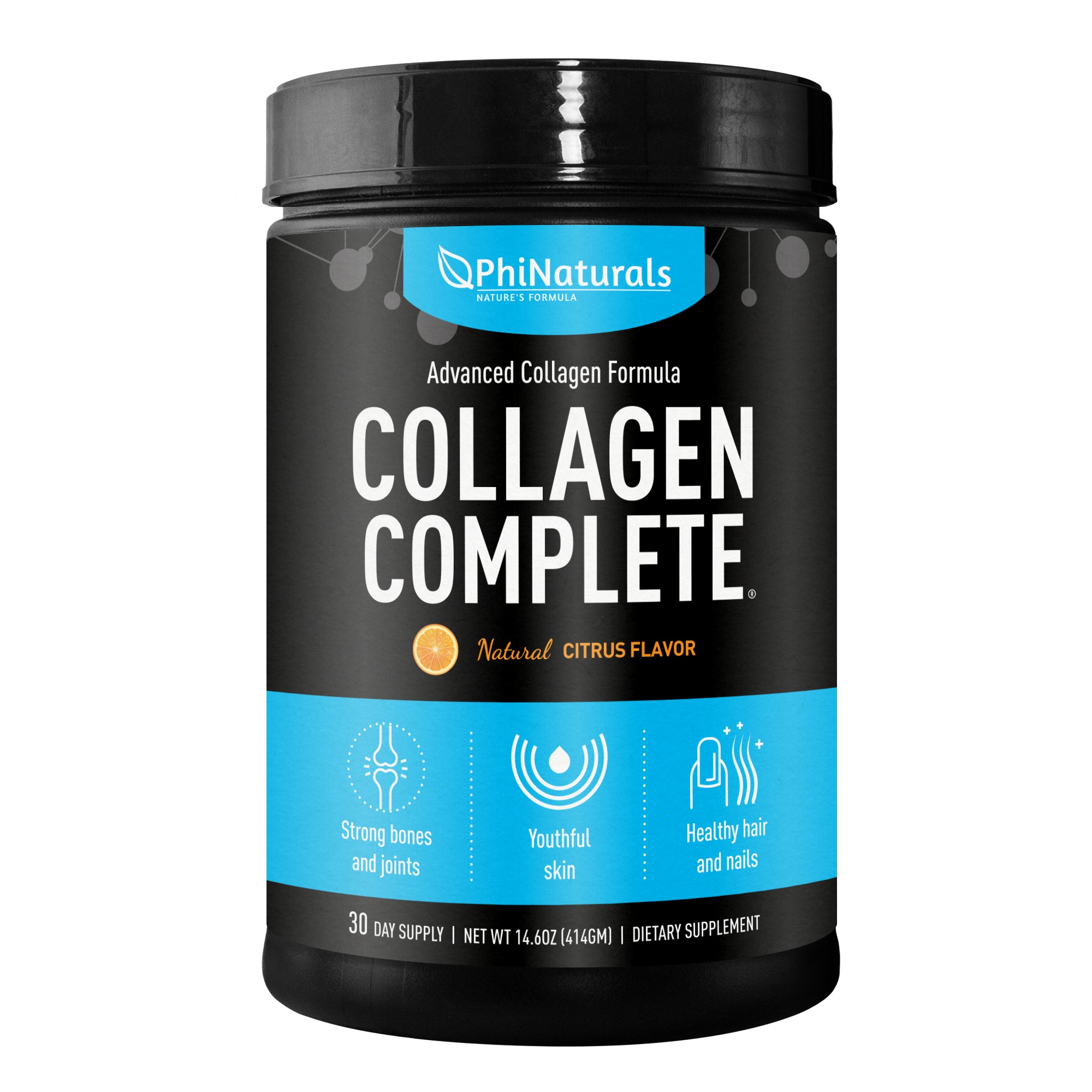 Buy Collagen Complete |  Buy Collagen Peptides |
